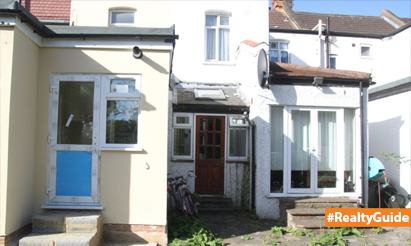Everything about RERA guidelines for Real Estate Brokers | The Ultimate Guide
Real estate brokers are key players in the industry. They act as the bridge between builders and buyers. Real estate agents also help their clients choose a property that suits them best.
Since their role in the industry is so prominent, the Indian government added some guidelines for real estate agents. A real estate agent Indian real estate brokers must first be registered under RERA before they start working with clients.
However, many fail to understand the basics of RERA due to complicated jargon. This guide explains everything you need to know about RERA for real estate brokers in an easy-to-understand language.
What do you mean by RERA?
RERA stands for The Real Estate Regulation And Development Act, 2016. It is a set of guidelines that real estate brokers must follow before they start a project. RERA acts as a guide that protects the interest of the consumers during any real estate sale and ensures that real estate agents go about their job responsibly.
According to RERA, no real estate agent can be involved in the sale of a project without being registered under RERA. Moreover, every real estate agent must make an application to the concerned authorities for registration within the time prescribed by the State. They must also submit any documents and fees required of them by the State. The authorities then grant a single registration to the real estate agent for the entire State or Union Territory.
Functions of real estate brokers
RERA is so detailed that it provides the functions of the real estate agent.
- No real estate brokers must be involved in the sale of a property that is not registered by the Authority.
- All real estate agents must maintain and preserve records as required by the Authority.
- Discharge other functions as may be required of them.
- Facilitate the possession of all the information and documents, as the allottee is entitled to, at the time of booking of any plot, apartment, or building.
Application procedure for RERA
The Application procedure for RERA differs from State to State. However, these are some essential documents that you will need to provide as a real estate agent:
- Details of the applicant include name, address, contact details, and photographs, among others.
- Copy of your PAN card
- A brief about your enterprise: this includes the name of your enterprise, the registered address, and the types of enterprise that you own.
- Details of the registration – as a proprietorship, partnership, society, company. This also includes bye-laws, AOA, MOA etc.
Additionally, you might need to submit any other details that the Authority deems necessary for your RERA registration.
RERA Registration Fees for Real Estate Brokers
Brokers typically need to pay a sum of ₹500/- for RERA registration. This is to be paid online to Mahaonline or the Maha-Rera website. There might also be additional payable charges.
An individual has to pay a sum of ₹10,000/- while a proprietor/ proprietorship firm, partnership firm, society, Pvt ltd./ ltd: company, LLP etc. Rs.1,00,000/- only.
Since India has gone digital, RERA payments can be made through digital mode. You can also pay via NEFT and RTGS.
How to register yourself as a real estate agent under RERA
Real estate brokers and agents can easily register themselves under RERA through the website
http://maharera.mahaonline.gov.inp Visit the website to fill up all the formalities, and keep important documents like Aadhar card, PAN card etc. handy.
Revocation of RERA registration for real estate brokers
- RERA registration for brokers might be revoked if the Authority finds any breach in the terms and conditions.
- In case the Authority finds that the RERA registration has been secured through fraud or misrepresentation.
- Any violations of the rules and regulations in RERA are susceptible to revocation.
RERA authorities deliver the registration number within thirty days of RERA registration. They also send a certificate of acknowledgement in case the authorities do not reject the application. If you do not receive your registration within 30 days, there is a provision of deemed registration within seven days (provided there has been no complaints, objection or rejection).
Disclaimer: The views expressed above are for informational purposes only based on industry reports and related news stories. PropertyPistol does not guarantee the accuracy, completeness, or reliability of the information and shall not be held responsible for any action taken based on the published information.



